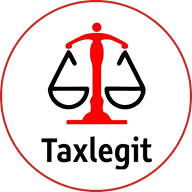Artificial intelligence depends heavily on annotated data to train models that can interpret images, audio, video, and text. Behind every advanced system lies the labour of thousands of data labelers who prepare the information. However, the industry has often been criticised for relying on low-paid, underprotected workers. As AI adoption grows, it is essential to focus not only on accuracy and speed but also on the ethical practices within the data annotation field. The Top Data Annotation Companies are now recognising that fairness, transparency, and responsibility are just as vital as technical excellence.
The Human Role in AI Development
Despite the advances in machine learning, artificial intelligence cannot yet learn effectively without human guidance. Annotators label objects in images, transcribe speech, and highlight important text segments. This work may seem simple but requires attention to detail and cultural awareness.
In many cases, annotation has been outsourced to developing regions where workers often face long hours, low pay, and limited legal protections. This imbalance raises questions about whether businesses are exploiting vulnerable communities in their pursuit of rapid AI development.
Common Ethical Challenges in Data Annotation
1. Low Wages and Insecure Contracts
Many annotators are paid less than minimum wage in their respective countries, especially when they are hired through crowd-sourcing platforms. Without proper contracts, workers lack job security and benefits.
2. Child Labour and Unregulated Hiring
Reports have surfaced of children and teenagers being hired informally to complete annotation tasks. Such practices not only exploit minors but also reduce the quality of datasets due to inexperience.
3. Lack of Transparency
Workers are often kept in the dark about what their contributions will be used for. Some may annotate data for sensitive applications such as surveillance or military use without being informed.
4. Psychological Stress
Tasks like filtering harmful or explicit content can cause emotional strain. Without mental health support, annotators may suffer long-term effects.
How Top Data Annotation Companies Address Ethics
The leading companies in this field are increasingly aware that their reputation depends on more than accuracy. To ensure long-term sustainability, they are implementing policies to prevent exploitation. Key practices include:
-
Fair Compensation: Paying annotators competitive wages aligned with local living costs rather than minimum or below-market rates.
-
Transparency: Informing workers about the nature of projects, especially those involving sensitive or potentially harmful content.
-
Child Protection Policies: Enforcing strict age-verification measures to prevent underage workers from being hired.
-
Health and Well-being Support: Offering access to counselling services for annotators exposed to disturbing material.
-
Workplace Inclusivity: Encouraging gender diversity and providing equal opportunities for annotators across different regions.
By integrating these principles, Top Data Annotation Companies demonstrate that success is possible without compromising human rights.
Why Businesses Should Care About Ethical Annotation
Organisations seeking annotation services should prioritise ethics for several reasons:
-
Data Quality: Happy and well-compensated workers deliver more accurate and consistent annotations.
-
Reputation Management: Companies associated with exploitative practices risk public backlash and legal consequences.
-
Long-Term Partnerships: Ethical vendors are more stable and reliable partners, ensuring continuity in large AI projects.
-
Compliance: With increasing international regulations on labour rights and data usage, businesses must ensure their partners operate responsibly.
Practical Steps for Selecting Ethical Vendors
When outsourcing, businesses can follow these guidelines to ensure they are working with ethical providers:
-
Audit Transparency: Ask for details about worker wages, contracts, and working conditions.
-
Check Certifications: Look for partnerships with organisations that monitor labour practices.
-
Pilot Projects: Start with smaller projects to evaluate both quality and ethical practices.
-
Focus on Local Vendors: In some cases, partnering with regional annotation providers ensures better oversight and fairer treatment.
The Future of Ethical Data Annotation
The next wave of AI progress will rely on balancing automation with human oversight. While large language models and automation tools are helping to reduce dependence on human labour, complete replacement is not yet possible. Human annotators remain central, especially for domain-specific tasks such as medical or legal data.
Therefore, ethical treatment is not just a moral responsibility but a business necessity. Companies that fail to adapt risk falling behind, while those that prioritise ethics will be recognised as trustworthy leaders in the industry.
Conclusion
Data annotation is the invisible backbone of artificial intelligence. Yet, behind every labelled dataset lies a human story. To avoid exploitation, businesses must seek partners that respect and protect their workforce. The Top Data Annotation Companies show that it is possible to combine technical excellence with ethical responsibility. By choosing wisely, businesses can not only build better AI models but also contribute to a fairer global digital economy.
Summary
The data annotation industry fuels the progress of artificial intelligence, but it also faces criticism for unfair labour practices. Low wages, child labour, lack of transparency, and psychological stress are common challenges. The Top Data Annotation Companies are leading the way by enforcing fair wages, transparency, and worker protections. Businesses must care about ethical annotation not only for compliance but also for data quality, reputation, and long-term success. Ethical partnerships ensure that AI development advances without exploiting vulnerable workers.
Frequently Asked Questions (FAQs)
1. Why is ethical data annotation important?
Ethical data annotation ensures that annotators are fairly treated, which improves data quality, protects human rights, and supports sustainable AI development.
2. What problems exist in the current data annotation industry?
The industry faces issues such as low pay, insecure contracts, child labour, lack of transparency, and exposure to harmful content without adequate support.
3. How do Top Data Annotation Companies maintain ethical standards?
They implement fair wage policies, enforce child protection measures, provide transparency about project usage, and offer mental health support for workers.
4. Why should businesses choose ethical annotation vendors?
Choosing ethical vendors ensures better data quality, reduces legal risks, protects company reputation, and builds long-term reliable partnerships.
5. Can automation replace human annotators completely?
Not entirely. While automation and AI tools help, human judgment is essential for tasks requiring cultural understanding, medical expertise, or handling sensitive data.





